Raw Material Conference 2023

(28th August to 2nd September)
https://www.rawmat2023.ntua.gr/
This session will give delegates the opportunity to learn about and discuss with industrial experts. Five experts from SME, large and small enterprises, and consultancies are invited. They represent important economic sectors, scandium and related alloys, gallium, aluminium (bauxite), titanium dioxide, and magnesium. Each metal has its specific supply and market issues, driven by the choice of technologies, related economic and financial matters.
The important titanium and aluminium industries may unlock by-products from residual waste streams or secondary products. Magnesium, and other critical metals can be recovered with innovative extraction processes reducing energy consumption, and C-footprint. Critical raw materials can and will thus be available in Europe for refiners and end-users.
What are the challenges, strength, opportunities, and threats for a European metal transformation and production? What are European solutions to be competitive with Asian produced critical metals.
Get innovative insights and join the debate
Panelists and Topics
Henk van der Laan (VIC, NL)
A European Stockpile Organization is a must have for Europe to reduce its supply disruptions for Critical Materials

Today, around 25% of the metals mined Worldwide are used in Europe, however, just around 2 - 3% of the World metal production is currently mined in Europe, resulting in a huge imbalance.
Is Europe aware of its necessity to expend its metal production?
This is a legitimate question, because the recent energy crisis has reduced Europe’s metal production capacity even further.
Metals are indispensable in the green transition for producing renewable energy. Metals are not only needed in products like wind turbines, solar panels, electric cars, or hydrogen technology, they are needed too in the expansion of the electric grid. Basic metals like aluminium and copper are needed to double the grid in the next 10 years to coop with the enormous growth of renewable energy.
The Green transition requires more critical metals like Li, Mo, Nb, V, Sr, Si, Ti, Mg, REE metals and Sc. Most of these critical metals (Mg, Nb, Sc, Sr, Ti and REE) are not at all produced in Europe and must be imported for 100%. The dependence on imports can lead to supply disruptions and lead to unacceptable high prices.
New sustainable mines are needed for the long term to solve the metal supply imbalance. Another option for Europe is to focus more on Industrial Symbiosis (IS) projects. In an Industrial Symbiosis project, waste streams from one industry are used as a feedstock for other industries.
However, developing new mines and starting new IS projects in Europe will not solve the imbalance of metals in Europe in the short term.
In order to avoid future supply disruptions, like the 2021 Mg crisis, Europe needs to set up a European organized critical metals stockpile.
Maurits van den Berg (Venator, GE)
The Sulphate Process and its role in a Chemical Production Network

In mainland Europe, Titanium Dioxide is produced predominantly via the Sulphate Process. The plants operate as large separation devices, with the main product TiO2, as a white pigment unsurpassed for its brightness and refractive index, containing only trace levels of foreign elements. The foreign elements accumulate in the co-products, which have been successfully integrated in existing large-scale industrial processes. Examples are additives that reduce hazardous chromium levels in cement or additives that aide in purifying water. Going forward, critical materials such as valuable metals can be gained from co-products. Further, co-products from the Sulphate Process may constitute a viable raw material to produce metals and alloys in metallurgical processes. Finally, the energy transition could benefit greatly from what the Sulphate Process has to offer in its co-product portfolio. Europe stands at a crossroads: will it prove to be possible to strategically secure these critical raw materials from the Sulphate Process?
Anastasios Kladis (ADMIRIS, Greece)
Industrial Minerals: The sleeping giant of European CRM resources?

While Europe is deficient in many (if not most) of metals (several of which are deemed as CRM), it has abundant resources of industrial minerals and rocks (IM): dolomite, bentonite, perlite, kaolin, feldspar, nepheline syenite, non-metallurgical bauxite. Several of those contain significant quantities of CRM, e.g. Al, Sc, Ga in bauxite. Due to large scale operations, IM extraction produces tailings, which also contain CRM. Already several EU funded projects are focusing on IM as a source of metals. Would the conversion of IMs into sources of metals including CRMs offer some support to European’s Industry effort to reduce dependency from imports?
Duane Runciman (Mures Magnesium Srl.)
Waste to resource – secondary resourcing from waste

Europe has failed to recognize the trapped value in its stored wastes generally treating waste mineral piles as exactly that. We believe the EU needs to start to consider that such waste is potentially semi processed stored resources that should be given opportunity to give again. A leaf should be taken out of Australia’s book where they have recently completed a survey of the countries waste / tailings piles. Further work needs to be done to catalogue Europe’s waste mineral piles, rate those that should be given a second look and then do initial surveys to include or eliminate these from reprocessing consideration. This will never be industry driven, but rather perhaps EIT RM / Horizon should be mandated to start this. A catalogue of these mineral wastes may well crystalize reprocessing thought processes.
Stefan Eichler (CTO, Freiberger Compound Materials)
Gallium Supply Chain - EU Resilience

Gallium is a critical raw material to produce GaAs - base for high frequency/optoelectronics. The gallium supply chain is analyzed from an EU resilience perspective. Strategies to improve the current situation are considered with respect to technological and economic aspects:
Panelists
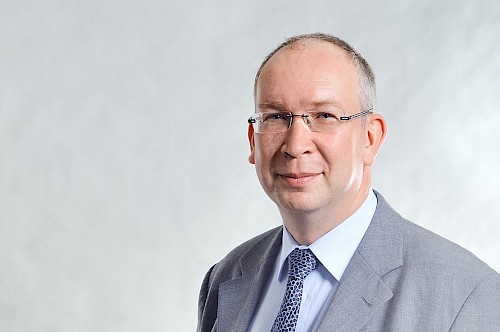
Stefan Eichler (CTO, Freiberger Compound Materials) studied physics at the University of Halle-Wittenberg (1989-1994) with special focus on solid state physics and numerical mathematics. In 1998, he earned his Ph. D. also from the University Halle-Wittenberg. Dr. Eichler joined Freiberger Compound Materials in 1999 as a research engineer. He was promoted to the head of fundamental research in 2002 and was subsequently appointed Technical Director in April 2007. In November 2011 he became Chief Technology Officer. He has over 10 years of experience in the field of GaAs crystal growth and wafering and is the author of numerous patents and scientific publications. Dr. Eichler also serves as an Adjunct Professor at the Technical University of Freiberg.
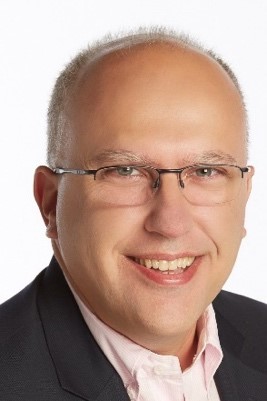
Anastasios (Tassos) Kladis (Admiris) studied Mining Engineering – Metallurgy at National Technical University of Athens (NTUA), obtained MSc. In Mineral Economics at Nottingham University, UK, and had professional training at INSEAD, France and IMD, Switzerland. He has spent 20 years in leading managerial positions in Mining Companies, focusing on Bauxite, Bentonite, Perlite, Wollastonite, and other Industrial Minerals. He was responsible for several JV’s and acquisitions in China, India, Turkey, USA, Brazil, Germany. Currently he is cofounder of AdMiRIS, a company specializing in LCA, technology transfer, industrial business planning and sourcing/supply chain analysis, cofounder of Metallurgy4, a company specializing in AI/ML for mining, metallurgy and biobased industries and owner of ORYKTON Consulting, focusing on CEO level consulting for strategic business development, M&As etc.
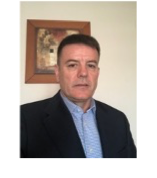
Duane Runciman (Mures Magnesium Srl) is currently an independent management consultant with extensive operational and project experience covering food industry, oil and gas, environmental and transport sectors. In the food industry this has included postings in Saudi Arabia, Russia (Pepsi Int Bottlers) and Romania which included design and construction of the facilities and then operational management. Duane is a shareholder and has been key in the development of the Mures Magnesium (MMG) remediation and minerals reclamation recovery project for the past 10 years bringing the project from site purchase and culminating in the securing of EIT Raw Materials funding (April 2022). This 5.5 M€-project funding is designed to upscale the project to magnesium metal production. The MMG project involves reprocessing of mineral wastes, extracting the trapped metals, and leaving a remediated site at EOP. Involvement started at the time of site purchase through work programme planning and management as well as documentation to the SRK UK Ltd issuance of a CPR / JORC statement.
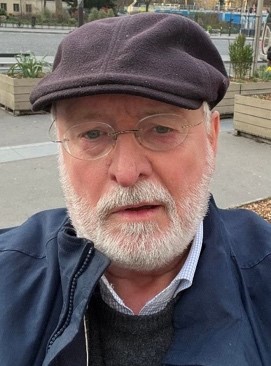
Henk van der Laan is a senior consultant and owner of Van der Laan International Consultancy BV (V.I.C.). Henk was born in 1954 in Rotterdam, The Netherlands. Henk has worked 44 years in the non-ferro metal industry of which 34 years as a global sales manager at KBM Affilips BV, a producer of master alloys. The last 10 years he has been involved in two EU funded Sc projects SCALE and ScaVanger. His company V.I.C. is a member of the American Society for Metals (ASM), The Mineral and Metals Society (TMS) and the International Magnesium Association (IMA). V.I.C. is a full partner in the EIT project Euro Magnesium. Henk has studied Metallurgy in Utrecht and Business Economics in Rotterdam and Industrial Marketing in Arnhem, all in The Netherlands. As a metallurgist he is specialized in aluminium, magnesium, and scandium. Furthermore, he is specialized in the grain refining mechanism of aluminium Titanium Boron. Besides his passion for aerospace, astronomy, technology, mining and metallurgy aluminium and scandium, Henk is an active mountain biker and a passioned Golfer and a great fan of all kinds of sports like football, cycling and formula 1.
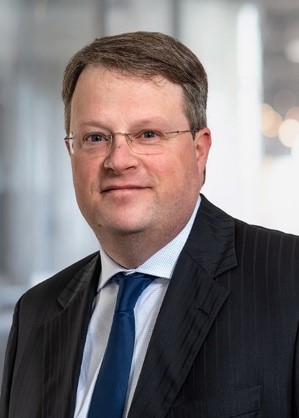
Dr. Maurits van den Berg (Black End Technology Expert, Venator)), obtained his PhD in Catalysis from Nottingham Trent University (UK) in 2004, after which he was a Post-Doctoral Fellow at the Ruhr University of Bochum (D). In 2009 he switched to industry as a researcher in the field of co-product development. Currently, he is a Black End Technology Expert for VENATOR, a leading manufacturer of Titanium Dioxide pigments.
Moderators
Thymis Balomenos (Mytilineos)
Beate Orberger (Catura)